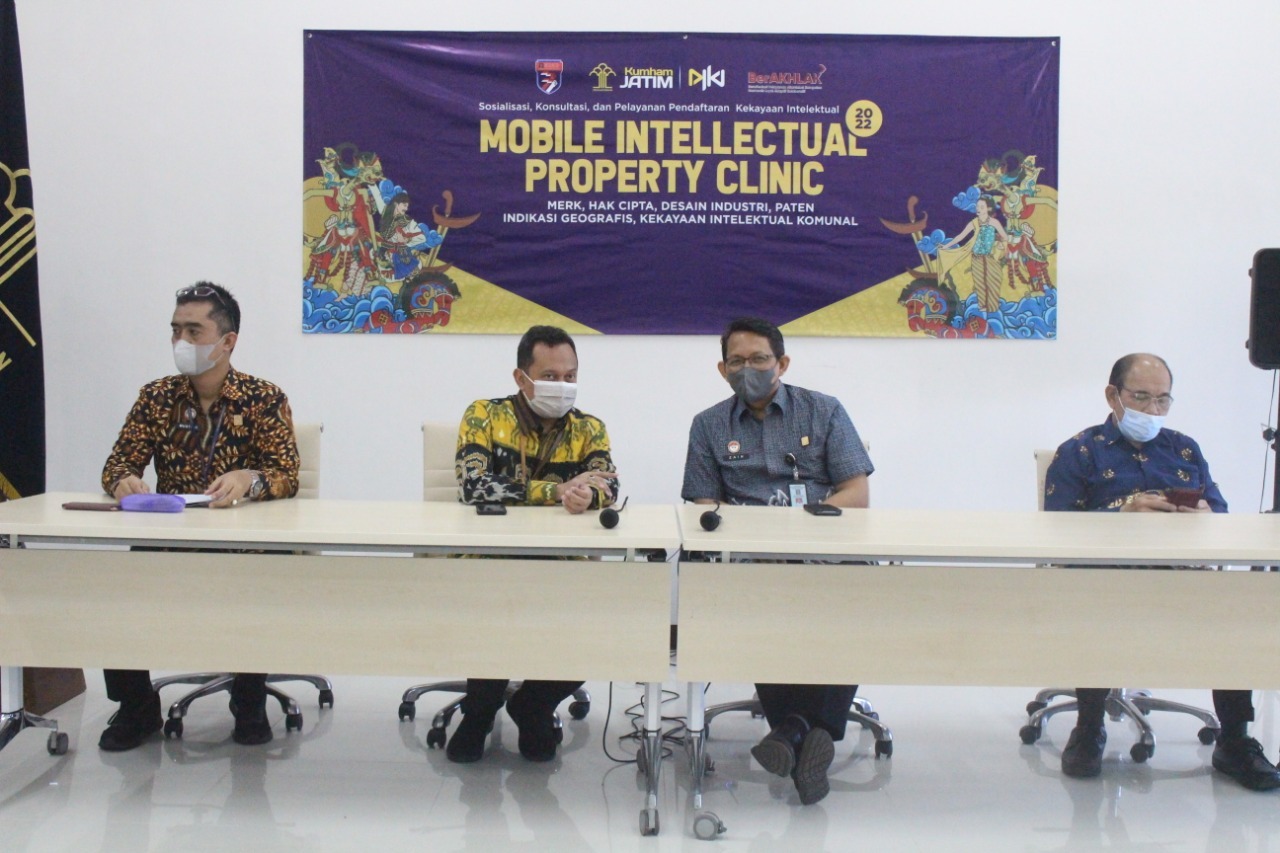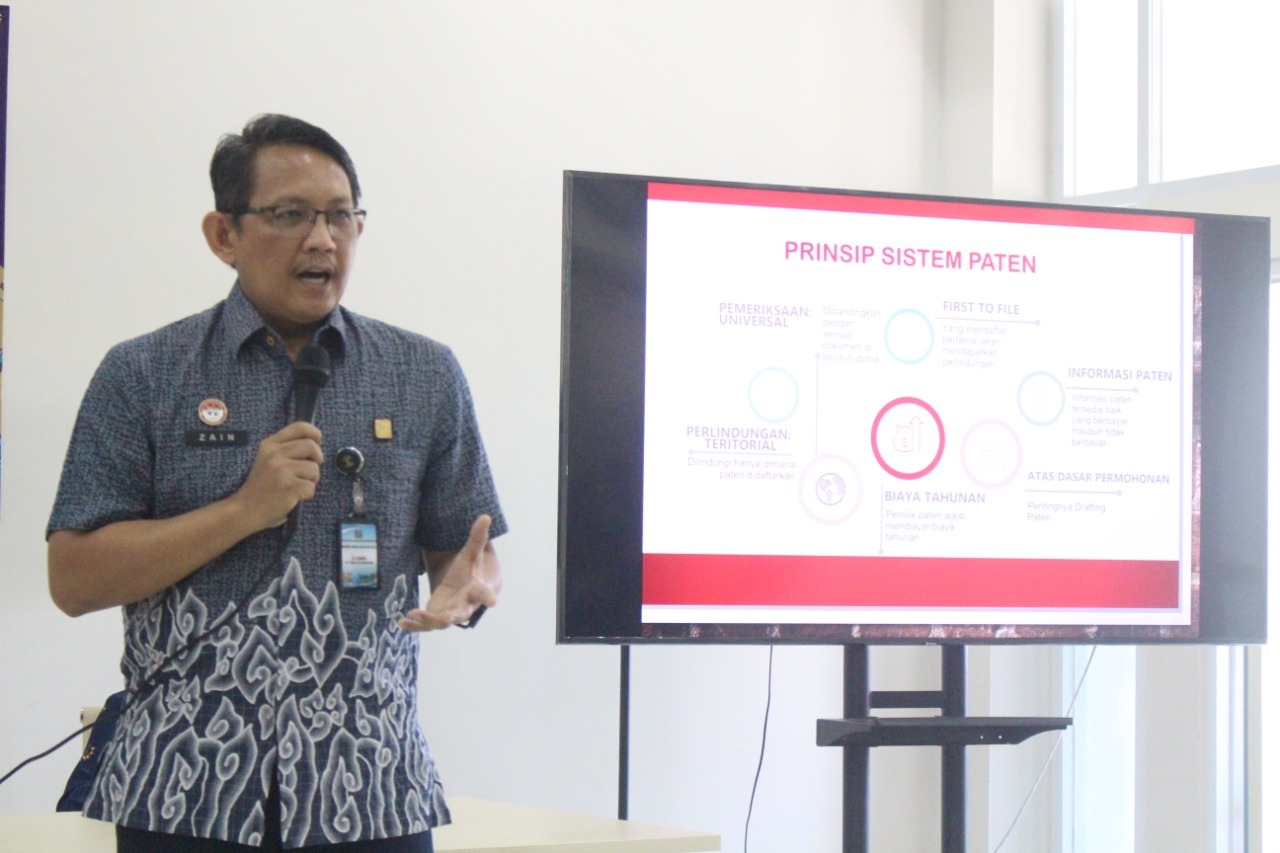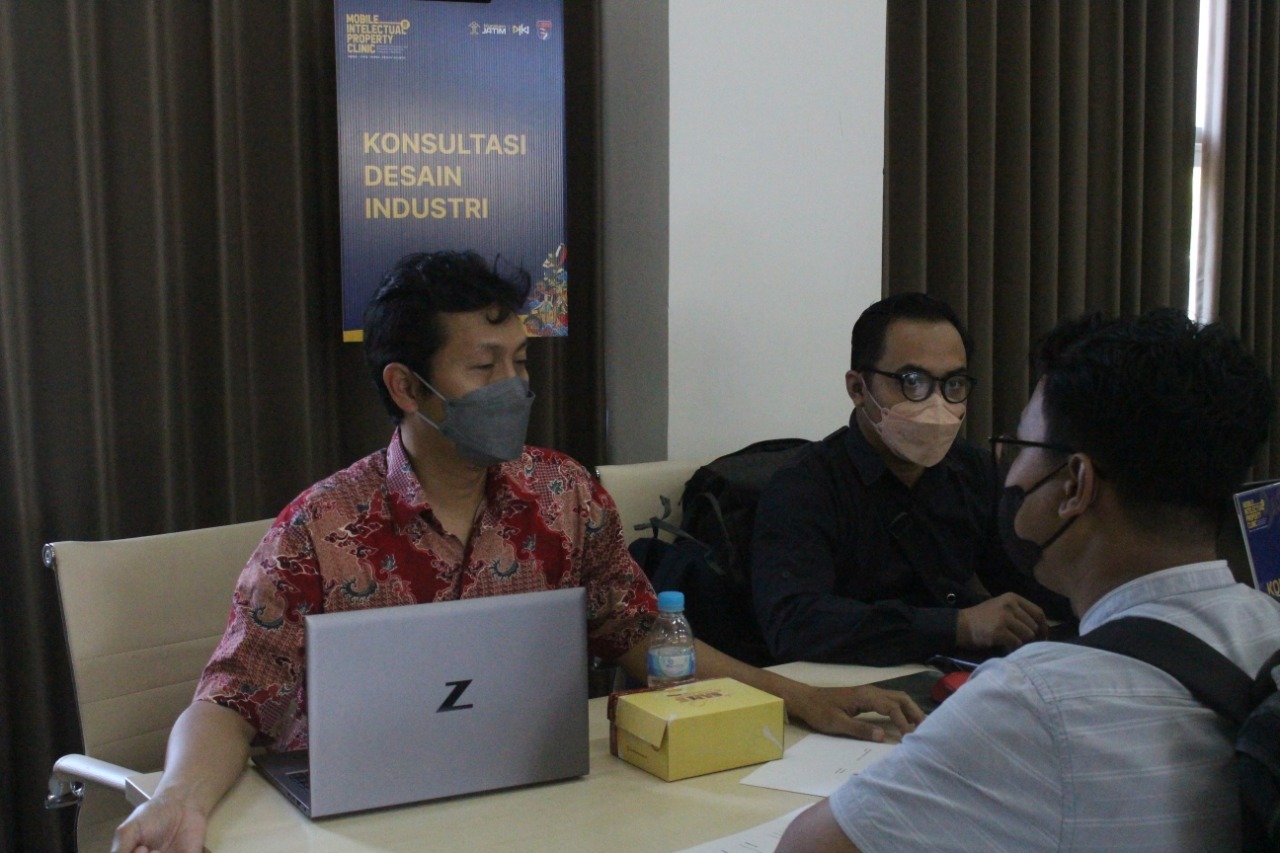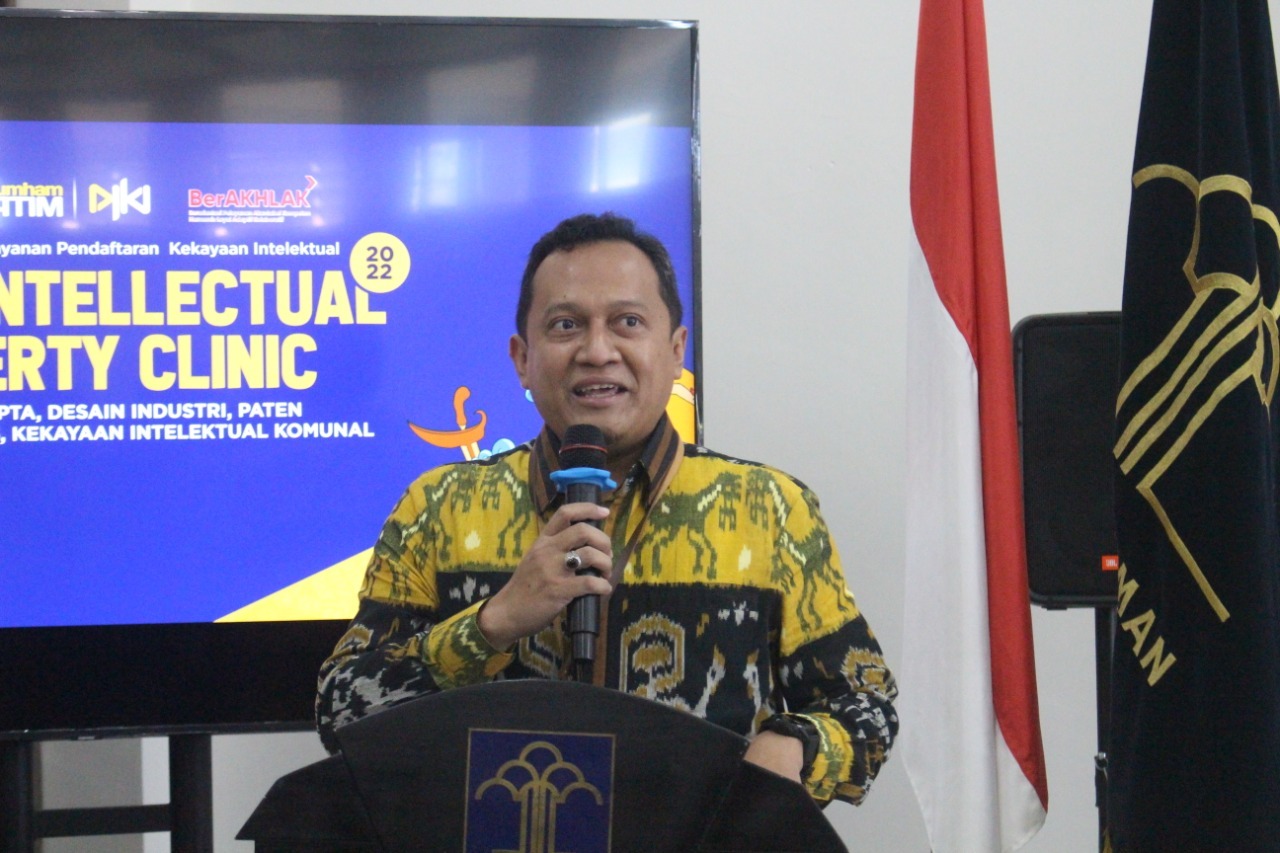ITS Encourages Intellectual Property Improvement Through IPR Clinic

(from left) Mustiqo Vitra Ardhiansyah SIP MSi MH, Agus Muhamad Hatta ST MSi PhD, Ir Mohammad Zainudin MEng, and Sahat Manihuruk ST when opening the Mobile Intellectual Property Clinic event at ITS
Campus ITS, ITS News – Seeing the importance of awareness of Intellectual Property Rights (IPR) in developing technology, the Institut Teknologi Sepuluh Nopember (ITS) accommodates its academics to be able to register IPR. Together with the Regional Office (Kanwil) of the Ministry of Law and Human Rights (Kemenkumham) East Java, ITS held a Mobile Intellectual Property Clinic, which was held at the ITS Interior Design Department on Wednesday (10/8).
At this event, ITS Director of Innovation and Science Technology Area (DIKST) Agus Muhamad Hatta ST MSi Ph.D., Head of Legal Services Division of the East Java Ministry of Law and Human Rights Mustiqo Vitra Ardhiansyah SIP MSi MH, and two Main Patent Examiners Ir Mohammad Zainudin MEng and Sahat Manihuruk ST. Also attending were ITS lecturers interested in finding out how to register their inventions to get IPR.
To provide enlightenment regarding patent requirements, one of the Main Patent Examiners, Ir Mohammad Zainudin MEng, explained that when registering an invention, three conditions need to be met or called substantive examination. These three things are novelty, have inventive steps, and can be applied in the industry. “So it is necessary to examine the substance of the inventions of the registrants so that not all inventions can be patented,” he explained.

Main Patent Examiner Ir Mohammad Zainudin MEng when giving his presentation on Intellectual Property Rights (IPR) at the ITS Interior Design Department
As he is known, Zain explained that there are six principles of the patent system that registrants need to study. First patent information, where information about the invention is readily available and can be accessed for a fee or not. Second, you will get protection first to file, namely, when registering a story. Third, universal examination, namely when writing an invention, will be compared with other invention documents worldwide.
The fourth is the principle based on the application, in which applicants need to prepare a draft of their patent. The Fifth is the annual fee, meaning the patent owner must pay a yearly fee. Finally, sixth is the principle of territorial protection, namely that a registered invention will only be protected in the country where the patent is registered. “So the audience’s inventions will be protected and not disturbed in Indonesia,” he said.
Furthermore, to complete this clinical event, five booths were provided that provide IPR consultation facilities to interested participants. The consultations provided cover various types of IPR such as copyrights, industrial designs, brands, communal intellectual property, and individual Limited Liability Companies (PT). “So there’s no need to be confused and ask through the counter again. Here is the main examiner who can immediately check it,” explained Zain.

One of the booths that were present at the Mobile Intellectual Property Clinic was serving participants for consultation regarding the registration of Intellectual Property Rights (IPR)
In his speech, Agus Muhamad Hatta said that he supports this event because ITS itself has the potential to get a lot of IPR based on lecturer research and student Final Projects (TA). So that it can increase the movement of the economy, where ideas and technology are the driving force. “This clinic is beneficial for ITS community members who have difficulty registering their work so far,” he said.

Director of Innovation and Science Technology Area (DIKST) ITS Agus Muhamad Hatta ST MSi Ph.D. when giving his speech at the Mobile Intellectual Property Clinic event
The lecturer, who is familiarly called Hatta, said that this clinical event was an excellent first step and an opening for ITS to become a more integrated university. The more inventions that are registered, the more this post-pandemic economy will generate and, at the same time, become a manifestation of legal awareness in Indonesia. “Hopefully, we can increase the number of IPR in Indonesia, especially at ITS,” said the lecturer at the Physics Engineering Department optimistically. (ITS Public Relation)
Reporter: Gandhi Kesuma
Related News
-
Facilitating Creativity of Students, ITS Information Systems Department Presents CCWS
ITS Department of Information Systems students conduct a discussion in one of the available spaces in the ITS Digital
August 10, 2022 18:08 -
ITS Explores Electrification Cooperation with PT Vale Indonesia
ITS Campus, ITS News — Following up on the Memorandum of Understanding (MoU) with PT Vale Indonesia, Institut Teknologi
August 10, 2022 18:08 -
ITS Reaches Top 7 BRIN Collaborators with 309 Scientific Publications
ITS Campus, ITS News — Institut Teknologi Sepuluh Nopember (ITS) continues demonstrating its commitment to strengthening collaboration in research
August 10, 2022 18:08 -
The Only One from Indonesia, ITS Student Becomes Erasmus+ Scholarship Awardee
ITS Campus, ITS News — Civitas academica of Institut Teknologi Sepuluh Nopember (ITS) has once again contributed to making
August 10, 2022 18:08
